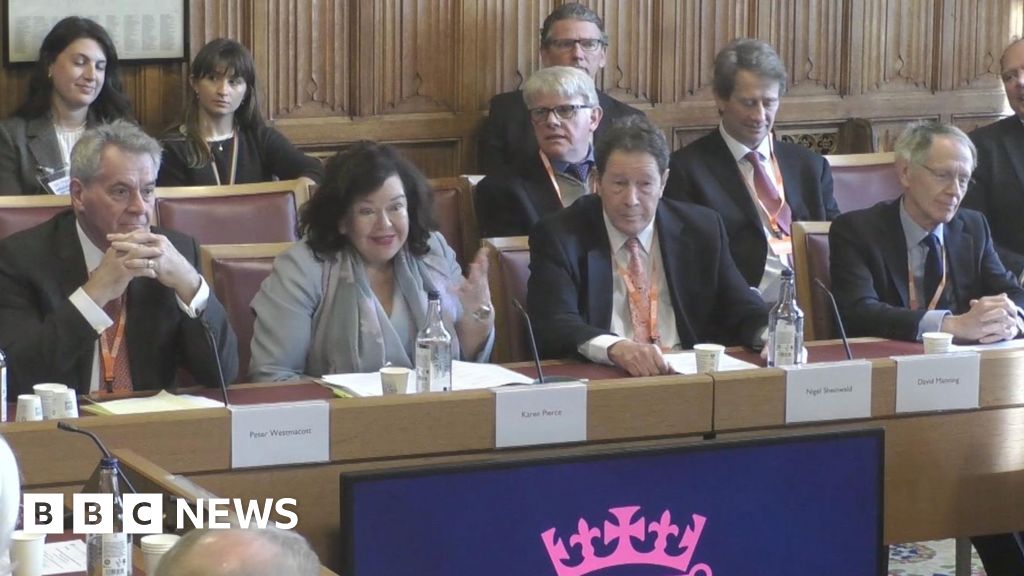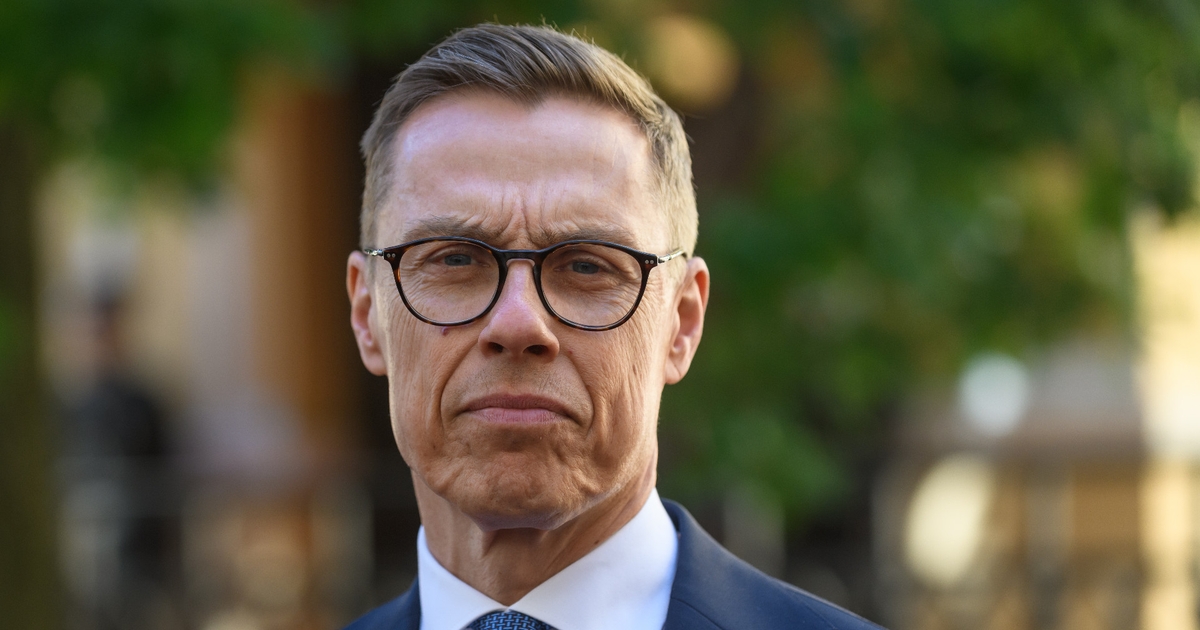- 22 Posts
- 18 Comments

 22·5 days ago
22·5 days agoFoxNews’ Watters on American TV: “We are not in high school. We don’t need friends … if we have to burn down a few bridges with Denmark to take Greenland … we’re big boys … we dropped A-bombs on Japan and now they are our ally… America is not handcuffed by history.”
Addition: Here is an alternative link to Mastodon if you don’t want to click Xitter: https://eupolicy.social/@Squig/114245727346349844

 11·5 days ago
11·5 days agoIt’s one of the few English speaking sources from China.
China’s Global Times is an English-language propaganda outlet in English. The Chinese Communist Party’s news agency Xinhua publishes in English (as well as in German, French, and many other languages). And then there are many propaganda outlets in English and other languages in the world.
Sometimes these are openly influenced by China. The Chinese government has been spending billions of dollars (in the single-digit billions, if I recall correctly) over the last decade or so to establish a network of such propaganda outlets all across the globe (publishing news in English and other local languages), all of them collaborating with the so-called “International Communication Centers” inside China for fine-tuning Chinese anti-democratic narratives.
Other propaganda outlets are hiding their connections to the Chinese Communist Party, the recent most prominent example likely being “NewsBreak”, that was once (or still is?) the most downloaded US news app, and in 2024 turned out to be of Chinese origin, and spreading AI generated ‘fiction’ and Beijing’s propaganda.
Your statement is absolutely baseless and even downright naive if it comes from a moderator dealing with such content.
[Edit for clarity.]

 4·7 days ago
4·7 days agoPikachu Spotted Fleeing Police Crackdowns During Turkey Protests – [Real news, not The Onion]
People are protesting in several major cities in Turkey, and Pikachu was at one in Antalya, according to local news outlets and social media. In the video, the person in the mascot suit hauls yellow nylon ass as fast as a pair of short, inflated legs can carry them—which is surprisingly fast, actually, considering how they’re keeping up with the people running all around them. The original video was captured by Ismail Koçeroğlu, a photojournalist at Akdeniz University in Antalya […]
And because nothing good is safe from AI—not even Protest Pikachu, arguably one of the purest pieces of iconography to come out of the resistance to the worldwide creep of authoritarianism yet—an AI-generated image of Pikachu rushing through the streets alongside protestors went viral shortly after Koçeroğlu’s video. Several local outlets have debunked the image, which is made to look like a high-resolution photojournalism shot from the ground, as being generated with AI.

 3·7 days ago
3·7 days agoIf the sanctions end they’ll be able to wind down and focus on peaceful development.
Where do you get this? Even the Russian experts -those from the Central Bank, from the universities, and other entities under the direct control of the Kremlin- openly refuse such claims. The numbers -from Rosstat, Russia’s national statistics office, and other Kremlin-affiliated institutions- are painting a completely different picture. Even the Russian state-media openly say that Russia’s economy is in for a long-term winter, e.g., the country will be facing severe labour shortage, staggering inflation, troubles to payout state pensions.

 544·8 days ago
544·8 days agoMr. Obermann may have a business interest here, but his remarks regarding Russia’s economy are absolutely valid. Putin has turned Russia into a ‘war economy’ with the whole country depending on war. Even Russian economists -including from the Central Bank- warn that the country will be facing difficult times if peace breaks out (which may also mean it would be difficult for Putin to stay in power as soon as the war ends and there is no enemy anymore).
So Obermann’s comment that “the internal pressure [in Russia] to deliver new victories through military conquest likely will grow”, is very real. Putin put his country on a war path for the long term. For example, Russia’s defense minister is an economist claiming that war would be a requirement for economic growth (this is, of course, complete rubbish, but this comes from Russia’s government).
I wrote a comment regarding Russia’s economy in a different thread and don’t want to repeat it, so here is the link if you are interested: https://slrpnk.net/post/19670037/14488418

 5·8 days ago
5·8 days agoRutte according to a report by AP:
“If anyone were to miscalculate and think they can get away with an attack on Poland or on any other ally, they will be met with the full force of this fierce alliance. Our reaction will be devastating. This has to be very clear to Vladimir Vladimirovich Putin and anyone else who wants to attack us."
[Edit typo.]

 5·14 days ago
5·14 days agoI personally feel that this speech doesn’t address many issues regarding the CBDC. The most obvious imho is that ths is not a competition between the digital euro and private payment systems, nor is it an issue of digital euro versus stablecoins, as the speech appears to address.
The most pressing problem with stablecoins allegedly is a lack of transparency and regulation (what Mr. Lane suggests), as no none knows whether or not the provider maintains full reserves (Tether, a stablecoin with links to China that has reportedly also been used in Chinese-Russian trade to circumvent Swift sanction imposed by the West, has reportedly been failing in the past to present audits showing sufficient asset reserves). I agree that stablecoins appear to be a problem from this point of view (partly also because it may negatively effect commercial banking and credit business, as the speech also suggests), but I would not only focus on stablecoins when it comes to alternatives to our modern money.
“An evolutionary process towards a flexible but stable monetary system”, to quote the speech, must not only entail the digitization of our fiat money, but the creation of a wide range of private currencies that are about to complement -rather than substitute- the future currency universe. Mr. Lane addresses this briefly in his speech, but then appears to offer ‘only’ CBDC as a solution. What we needed, however, are complementary currencies for different use cases. The digital euro is important, but only one part of the solution imho.
Private payment systems can (and should, imo) only be addressed by other private service companies. If we want an alternative for Paypal in Europe, we need something like Wero or the GNU Taler. It depends on the use case.
One major point with the digital euro is privacy. As for now, the planned so-called ‘offline digital euro’ -supposed to be used for very small everyday payments, e.g., you would bump your phone wallet to pay your restaurant bill, or you may even have a prepaid card rather than a phone- might be really private (to the best of my knowledge, interpreting the current plans). If you are using this offline version, the only people who have access to the payment data are you and the person/organization you pay. All checks are made only if you top up your digital wallet with your bank. (There is, however, a plan to combat criminal attempts and fraud, so it is not clear yet whether or not there will be a way for commercial banks -or the central bank- to use private data for this as the plans are not yet clear about it, afaik).
The online version of the digital euro is much trickier when it comes to privacy. According to the current plans, only your bank would see your full data (namely your transactional data and your identity), while the central bank would see your transactional data, but not your identity. However, such ‘pseudonymity’ is a much greater problem as it initially may seem as we know. First, a single transaction that would link your account to your identity could reveal immediately the entire data set; and, second, any change in the law -for example, a new government may hold a different view on privacy and introduces new rules- could undermine the privacy of people completely.
As Mr. Lane concludes,
The digital euro is not just about making sure our monetary system adapts to the digital age. It is about ensuring that Europe controls its monetary and financial destiny, against a backdrop of increasing geopolitical fragmentation.
Although I agree with this view in principle, controlling Europe’s monetary and financial destiny is not about the digital euro alone. We need also private, complementary currencies as well as European alternatives to the private payment service providers currently dominated by U.S. companies.

 7·15 days ago
7·15 days ago… China’s policy of heavily subsidizing key industries, which allows Chinese manufacturers to produce at a scale and cost that Western companies struggle to match.
Yes, but it’s not just the subsidies. An additional important factor in this context that the article doesn’t mention is the number of people in China who are forced into modern slavery. Therefore, a strong supply chain law is essential not only with regards to human rights (any trade agreement that does not include this crucial issue is useless imo), but also for a competition policy.
The article makes several good points how Germany and Europe have an advantage over China. But we need to get the human rights issue, too. That’s a major point.

 3·15 days ago
3·15 days agoCuts and caps to benefits have always harmed people, not helped them into work
[…] While spending on disability-related support has gone up [in the UK] in recent years, the overall welfare bill has not. On top of that, the proportion of people who are not in work and who are claiming disability-related social security is actually about the same as it has been for the last 40 years. Indeed, the fact it is so low, given population ageing, could be read as good news […]
The best evidence we have right now suggests that making it more difficult to claim social security and placing more strenuous work-search requirements on claimants will simply push people with poor health (particularly mental ill-health) further away from the labour market […]

 2·16 days ago
2·16 days agoFirst, Harvard’s failure to speak out discourages other, more vulnerable universities from taking action, which undermines our collective defenses. If Columbia or another university confronts the administration on its own, it will lose. If America’s nearly 6,000 universities and colleges launch a campaign in defense of higher education, odds are that Trump will lose.
Someone must lead this collective effort. And if Harvard and other leading universities remain in their protective shells, there is a good chance that no one will.
Second, and crucially, silence cedes the public debate. Public opinion is not formed in a vacuum. The social science research is clear: In the absence of a countervailing message, a one-sided debate will powerfully shape public opinion. As long as he faces no public counter-argument from leaders of higher education, Trump will punish universities and pay no cost in the court of public opinion. If Harvard and other universities make a vigorous defense of higher education and principles of free speech and democracy, much of the public will rally to its side […]

 5·17 days ago
5·17 days agoThis is a difficult market. Last year we have seen job losses and even bankruptcies of several EV brands - particularly in China, not (yet?) in Europe and the U.S. - and we will see what happens in 2025 and after.

 24·17 days ago
24·17 days agoIt’s an interesting article from a unusual point of view (and an unusual source).
From a macroeconomic point of view, a major problem for Russia’s civilian industry could be a lack of labour (in addition to what the article suggests regarding returning soldiers’ psychological problems), as stated by several (Russian) economists. And even Russian media admitted that private companies in other sectors than military are operating at around 80% of capacity due to a lack of labour. According to the Russian consultancy Yakov and Partners, Russia could reach a worker shortage of 2 to 4 million people by 2030.
Another problem for Russia on the economic road to peace could be the banks. Sberbank and TVB, both state-owned, have been required by law to fund companies from the military complex at state-subsidised rates, not in the least because Russia’s central bank had to raise interest rates to 21% to curb a devastating inflation. Some other sectors (agriculture, construction) also benefited from state-sponsored lower-than-market rates (these public funds does not count as Russia’s official budget of 40% for military spending afaik).
According to official numbers by the bank of Russia, this led to an increase of profits for both Sberbank and VTB, but these loans -which essentially means that banks could ‘mint’ a large amount of money within a short time span - now amount to 16% of Russian commercial banks’ total assets. This poses a high risk to the banking sector, and it increases once the war is over and peace breaks out. Central Bank Governor Elvira Nabiullina has warned already late last year that the Russian banking sector’s capital adequacy ratio has dropped by 2 percentage points in the course of 2024, reaching 12.5%. (Simply speaking, the Capital Adequacy Ratio is a metric used by regulators around the globe measuring a bank’s ability to absorb a sufficient amount of loss before they loose depositor funds.) Russia’s ratio is still above the minimum requirement under the so-called Basel III rules (which is 10.5% if I am not mistaken), but the drop is significant, meaning that Russian banks could be quickly running out of cushion to avoid insolvency once the situation changes.
Russia has also lost its most important economic lifeline, oil and gas, and Europe won’t come back as buyers given that the Kremlin is posing a threat to the continent.
And all this must be seen as even now, as the war is raging, the Russian economy, despite coming from a relatively low level, is already slowing down. The IMF expects a growth rate of 1.3% this year and 1.2% in 2026. Some time ago, Russian economist Natalia Zubarevich said that in Russia “there will be no collapses, but rather a viscous, slow sinking into backwardness.” Maybe she is right?
[Edit typo.]

 6·20 days ago
6·20 days agoFriendly reminder that the European Parliament lifted restrictions on MEPs, allowing them to meet Chinese officials again (the restrictions were introduced two years ago over human rights abuses in East Turkistan, a region which is referred to as Xinjiang by the Chinese regime). Maybe it’s time to correct this?

 7·20 days ago
7·20 days agoDonald should not mess up with Denmark. They may not have the cards, but they have the eggs. Think of the eggs …

 132·24 days ago
132·24 days agoVance’s cousin fought in Ukraine, and he is openly criticizing the VP and the U.S. administration for its Ukraine stance. This is highly relevant for Ukraine and Europe.

 10·24 days ago
10·24 days agoMeanwhile, as Russian attacks on Ukraine killed dozens over the weekend and destroyed Ukrainian energy infrastructure after the U.S. pulled much of its support from Kyiv, Trump defended Putin’s ramped-up attacks on Friday, as per Democracy Now:
President Donald Trump: “I actually think he [Putin] is doing what anybody else would do. I think he’s — I think he wants to get it stopped and settled, and I think he’s hitting them harder than — than he’s been hitting them. And I think probably anybody in that position would be doing that right now.




I agree. Unfortunately there is a lot of this bs here in this community, and it appears to come form always the same accounts.